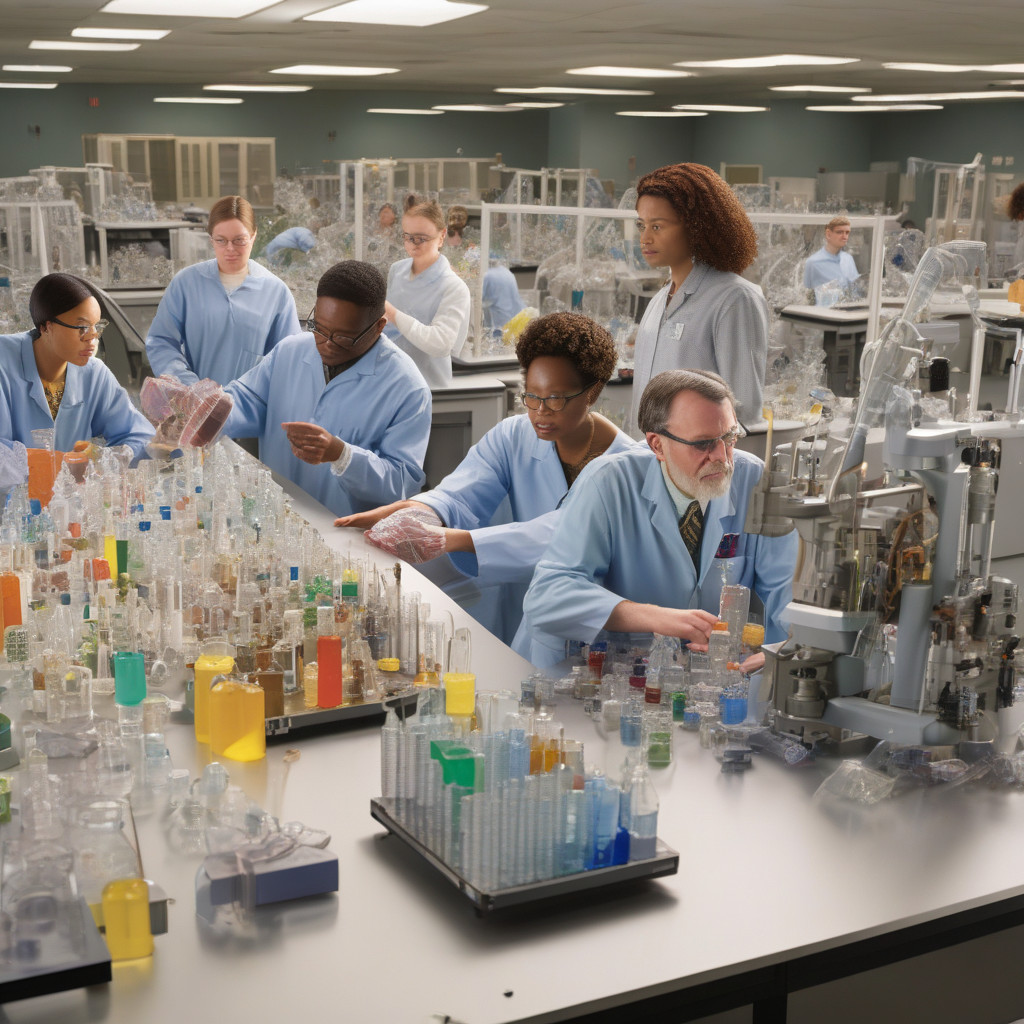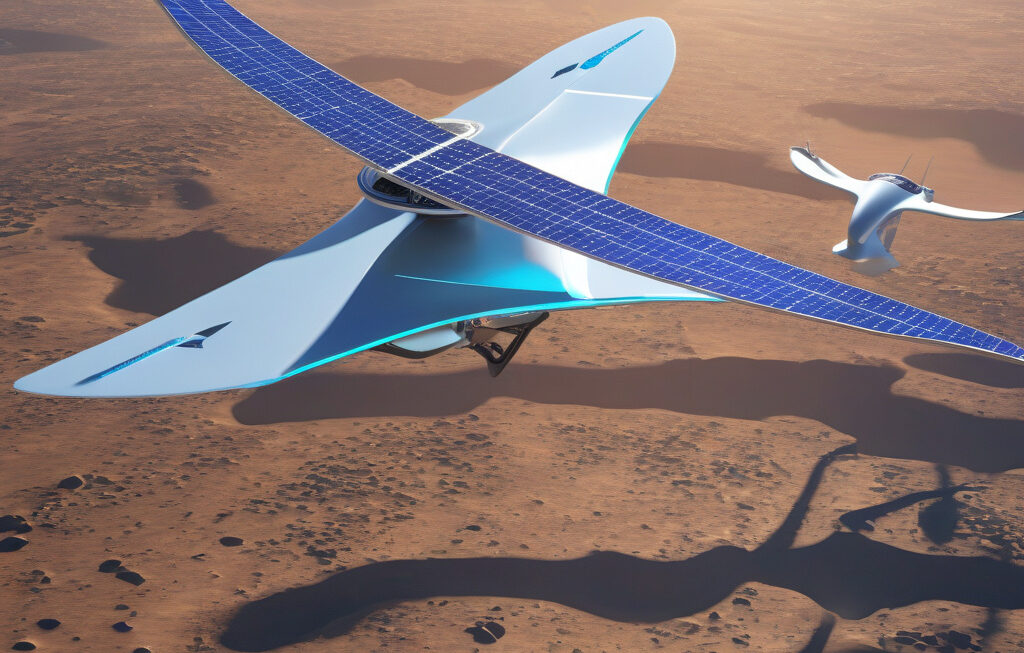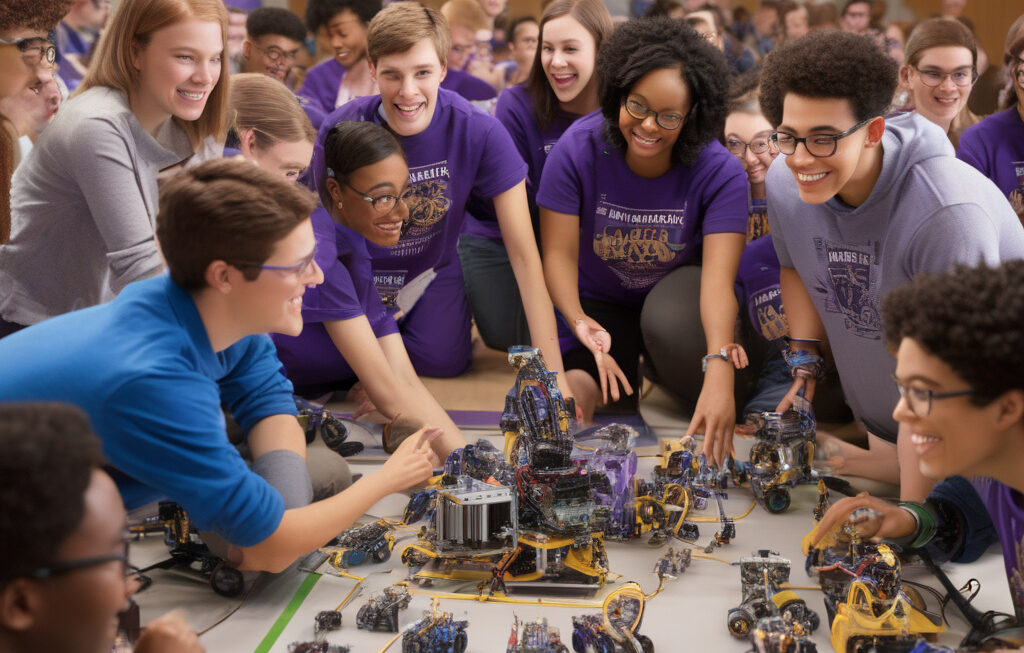ORNL Revolutionizes Plastic Waste Upcycling with Innovative Polymer Editing Method
The global issue of plastic pollution has long plagued our environment, with tons of plastic waste ending up in landfills and oceans each year. However, the Oak Ridge National Laboratory (ORNL) is spearheading a groundbreaking solution to this problem through the pioneering of a polymer editing method for upcycling plastic waste. This innovative approach is set to transform discarded plastics into valuable, high-performance materials, marking a significant step towards a more sustainable future.
Traditional recycling methods often involve melting down plastics to create new products. While this process is beneficial, it has limitations as the quality and properties of the recycled plastic may not match those of the original material. ORNL’s polymer editing method, on the other hand, focuses on molecular-level modifications to enhance the performance and value of recycled plastics.
By applying advanced molecular editing techniques, ORNL researchers can precisely tailor the structure of polymers found in plastic waste. This customization allows them to eliminate impurities, strengthen the material, and even introduce new functionalities, creating a high-quality end product that rivals virgin plastics in performance.
One of the key advantages of ORNL’s polymer editing method is its ability to upcycle a wide range of plastic waste, including hard-to-recycle plastics like polyethylene terephthalate (PET) and polystyrene. By converting these challenging materials into valuable resources, ORNL is not only reducing the amount of plastic entering landfills but also minimizing the demand for new plastic production.
The implications of this innovative approach extend beyond waste reduction. The upcycled materials produced through ORNL’s polymer editing method have the potential to be used in various industries, from automotive and construction to electronics and packaging. These high-performance materials can serve as sustainable alternatives to traditional plastics, contributing to a circular economy model that prioritizes resource efficiency and environmental conservation.
Moreover, ORNL’s efforts in polymer editing align with the growing global emphasis on sustainability and circularity. As consumers and businesses increasingly prioritize eco-friendly practices, innovations like ORNL’s polymer editing method offer a viable solution to address plastic waste challenges while meeting the demand for high-quality, sustainable materials.
In conclusion, ORNL’s pioneering polymer editing method for upcycling plastic waste represents a significant advancement in the quest for a more sustainable future. By harnessing the power of molecular-level modifications, ORNL is transforming discarded plastics into valuable resources, paving the way for a circular economy that minimizes waste and maximizes resource efficiency. As we continue to tackle the complex issue of plastic pollution, innovations like ORNL’s polymer editing method provide hope for a cleaner, greener planet.
#ORNL #PlasticWaste #PolymerEditing #Sustainability #CircularEconomy











